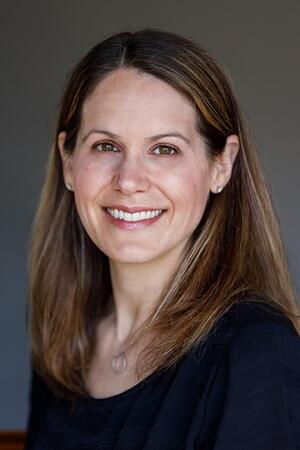 Welcome to the Department of Earth and Planetary Sciences at Yale University. Whether you’re an alum, a current or prospective member of our community, or a visitor, we’re glad you’ve found our website.
Welcome to the Department of Earth and Planetary Sciences at Yale University. Whether you’re an alum, a current or prospective member of our community, or a visitor, we’re glad you’ve found our website.
Here in the EPS department, we ask fundamental scientific questions: How did life arise on Earth and evolve through time? What caused major mass extinctions in the geologic past? What processes shaped the formation and evolution of the solar system? How and why has the Earth’s climate changed through Earth history, and what does this mean for us today? Why does Earth have plate tectonics, and how have tectonic processes shaped landforms and life through Earth history? What’s going on in Earth’s deep interior, and how does the deep Earth affect the surface? As we investigate these themes, we also tackle issues of pivotal importance to society, such as earthquakes, volcanic hazards, hurricanes, environmental change, evolution and the fossil record, the remediation of atmospheric carbon, and the sustainability of natural resources. Our field is truly cross-disciplinary, bringing together geology, physics, biology, chemistry, and math to understand our home - Earth - and other planetary bodies.
Our department, one of the oldest natural science departments in the country, has a rich history of discovery and innovation in the Earth and planetary sciences, and our excellence continues today in our faculty, research scientists, staff, and students. Our undergraduate students have diverse opportunities to learn and apply the various subfields of Earth and planetary sciences to fundamental and contemporary issues. Undergraduate degrees include four potential tracks (atmosphere, ocean, and climate; environmental and energy geoscience; paleontology and geobiology; solid Earth and planets), and our undergraduates have rich opportunities for cutting-edge research, field work, and cross-disciplinary collaboration. EPS is the home of the popular Energy Studies Program, with students participating across Yale College.
The EPS graduate program aspires to train exceptional Earth and planetary scientists in a collaborative, diverse, inclusive, and supportive community of scholars. Our Ph.D. students pursue research in any area of specialization represented by the faculty. Moreover, interdisciplinary study among research groups, as well as with other departments at Yale, is common and encouraged. Our alumni, both graduate and undergraduate, go on to a wide variety of careers. Graduates of Yale EPS are represented in faculty positions (at research universities, primarily undergraduate institutions, and community colleges), at museums, in government agencies such as the USGS and national laboratories, in various non-profits, in private-sector roles such as consulting, data science, the energy industry, and environmental science, and in science policy positions.
The Yale EPS department is committed to fairness, equity, and inclusion of all people from all backgrounds, and we aim to cultivate an environment that allows all of us to thrive. We strive to recruit, retain, and support a departmental community that is diverse along a number of dimensions. Our IDEA (inclusion, diversity, equity, and anti-racism/anti-discrimination) committee spearheads departmental work in the DEI space, with initiatives that include talks and seminars, a biweekly reading group, and a recently established Public Outreach/DEI Fellowship for graduate students.
The field of Earth and planetary sciences is more crucial today than ever. It is clear that humanity’s future depends on environmental stewardship and the sustainable use of Earth’s resources, particularly when it comes to the intertwined problems of energy infrastructure, climate change, and natural disasters. Progress on these critical issues requires the cooperative efforts of scientists and policy makers, and demands a deep, thorough, and integrated knowledge of the entire Earth system. Through our research and educational programs, EPS strives to meet these challenges, and to provide the rigorous scientific framework in which to face them.
Again, welcome to our department. Please enjoy our website, which describes our research and programs in more detail, and feel free to contact us with questions.
Best,
Maureen Long